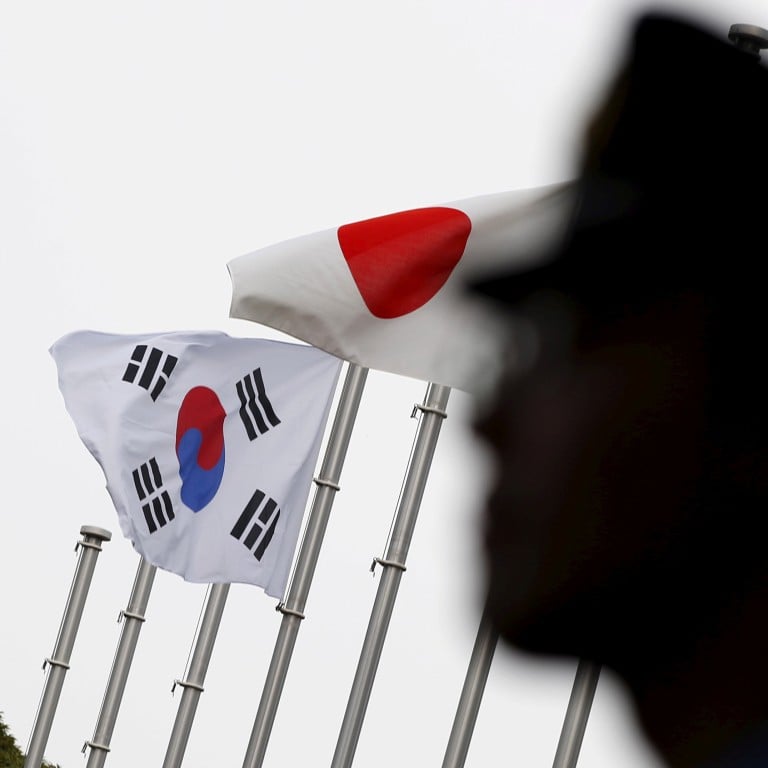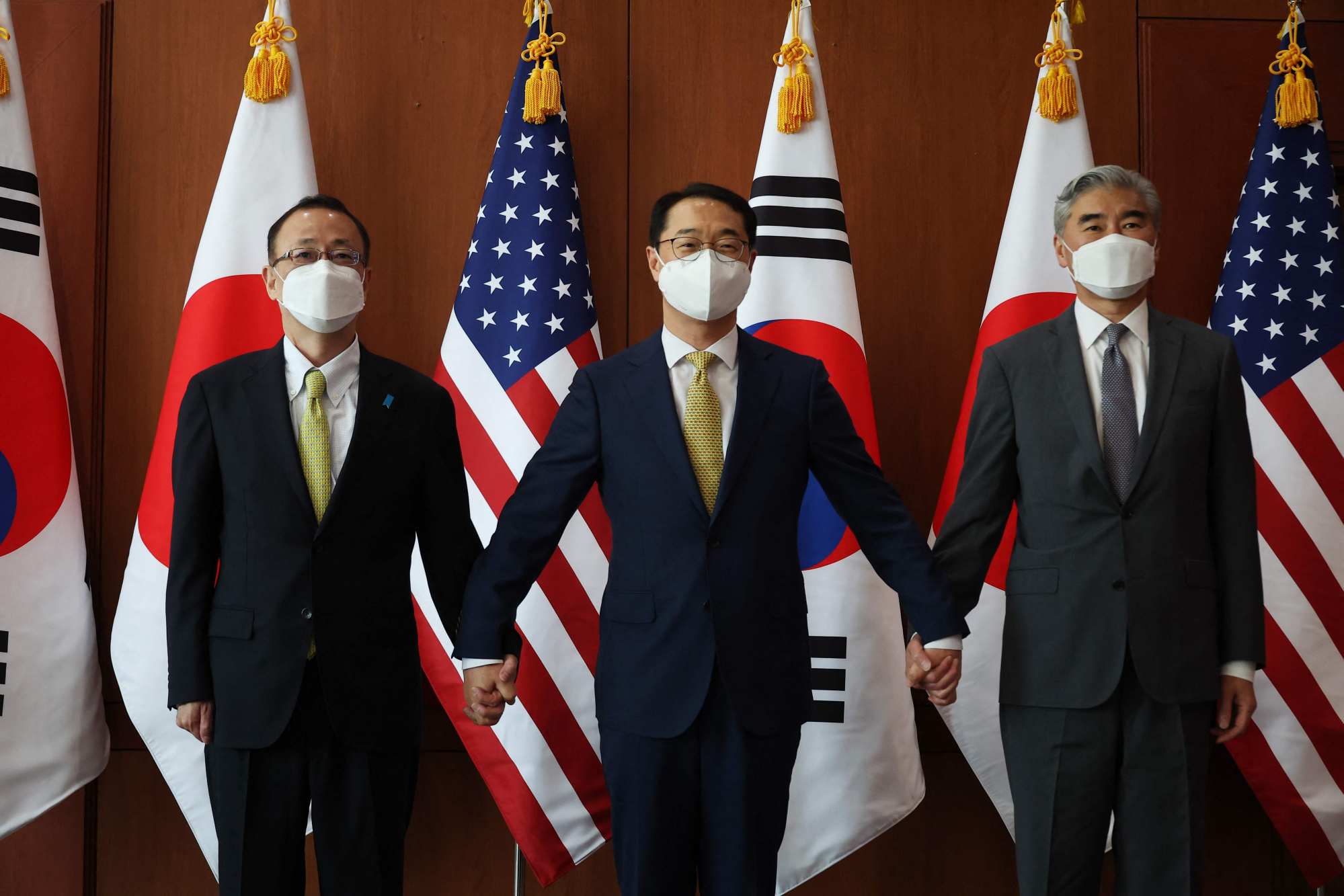
South Korea, Japan set for first high-level defence talks in 6 years, with assertive China, nuclear North Korea on agenda
- Defence talks could be precursor to potential bilateral summit between Japanese PM Fumio Kishida and South Korean President Yoon Suk-yeol
- Seoul and Tokyo are under pressure to pursue a mutual understanding as they face common concerns over China’s assertiveness
The discussions take place after Kim Gunn, Seoul’s special representative for Korean peninsula peace and security affairs, holds talks in Tokyo with Takehiro Funakoshi, head of Asian affairs at Japan’s foreign ministry, and Sung Kim, Washington’s special representative for North Korea.

South Korea wants to mend ties with Japan, but history’s still in the way
Compensation suits filed in South Korea have progressed to the Supreme Court, but triggered a backlash in Japan that included limitations on exports of chemicals critical to the South’s microchip sector. The tit-for-tat exchanges saw public sentiment decline in tandem with the political bickering, with travel between the two countries declining sharply.
A new poll indicates, however, that the two nations’ citizens are putting that behind them and are once again “favourable” to each other.
Analysts emphasise that domestic political considerations make it impossible to predict the future course of the relationship.
“Yoon has to persuade the domestic audience that the South Korean government should provide compensation for the former forced labourers to end the dispute, but that could very well cost him support when he is already looking vulnerable,” said Akitoshi Miyashita, a professor of international relations at Tokyo International University.
“On the other hand, if he insists that Japan or Japanese companies pay half of the compensation, for example, then that will not be acceptable to Tokyo,” he told the Post.
Yoon’s public support is hovering narrowly above 30 per cent, which does not give him a lot of leeway to offer compromises to Tokyo on historical issues, although he may get more backing in other areas, Miyashita said.
South Korean court dismisses ‘comfort women’ claim against Japan
“It would be smart for both sides to shelve issues like the forced labourers or the comfort women and to move forward in areas where they can agree, such as security and military agreements,” he said.
Stephen Nagy, an associate professor of international relations at Tokyo’s International Christian University, said Yoon has tried hard to get the bilateral relationship back on an even keel.
“From the Japanese perspective, the signals could not have been better, but Japan is concerned about whether Yoon’s administration is sustainable,” he said. “Tokyo wants to see constant connections and a partner that they can rely on.”
Yet Nagy remains optimistic on convergence, although that is primarily driven by forces beyond Tokyo and Seoul.
“The challenges in the region have changed dramatically in the last couple of years and it could be argued that China’s recent actions have made it more unpopular than Japan in the region – achieving something that Japan could only dream of previously,” he said.

